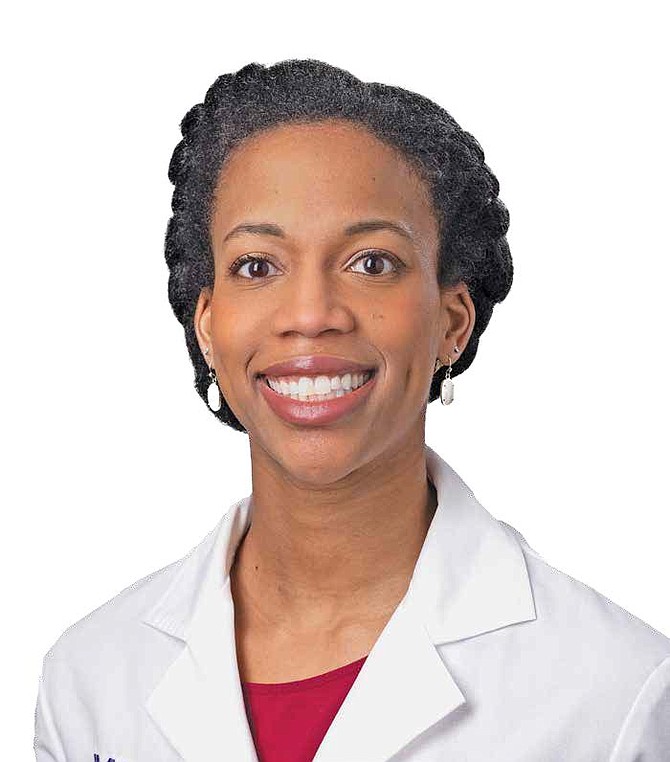Closing the Black Maternal Health Gap Is At The Center Of Organization’s Work
Closing the Black Maternal Health Gap Is At The Center Of Organization’s Work
By Tia Carol Jones
April is National Minority Health Month. One week is set aside as Black Maternal Health Week, April 11th through 17th. The theme of this year’s theme was “Our Bodies Still Belong to Us: Reproductive Justice Now,” and April 11th is recognized as International Day for Maternal Health and Rights.
The Black Maternal Health Week was started by the Black Mamas Maternal Alliance in 2018 to build awareness, activism and community building, with the goal to amplify voices, lived experiences and perspectives of Black mothers and birthing people.
The Black Mamas Maternal Alliance began as a partnership project in 2013 between the Center for Reproductive Rights (CRR) and SisterSong Women of Color Reproductive Justice Collective (SisterSong). The goal of the Black Mamas Maternal Alliance is to change policy, cultivate research, advance care for Black mothers and shift culture, with the hope that Black mothers are able to thrive before, during and after pregnancy.
Dr. Janelle Bolden, Associate Professor of Obstetrics and Gynecology and Medical Education at Northwestern University Feinberg School of Medicine, said it is important to highlight Black Maternal Health because the United States has a “despicable” maternal mortality rate, and Black people have a three times as high likelihood to have a maternal mortality than non-Hispanic whites.
“It also brings to light the great disparity between Blacks and non-Blacks, as far as health overall, but specifically, maternal health,” Bolden said.
As for why there is such a maternal health disparity among Black women, Bolden said it boils down to racism, bias, and discrimination. Structural racism impacts the healthcare of everyone and disproportionately impacts outcomes for Black mothers. She said it can be seen on a systemic structural level, but also, in individual encounters that patients have within the healthcare system. She also acknowledged that Black people have a distrust of the medical system and the ways Black people have been dehumanized in the healthcare system.
When it comes to fixing the disparity and making inroads, Bolden said awareness is the first step. She said people need to know what’s going on and what the facts are. Now there is data that shows Black women are dying when they are encountering a pregnancy.
Bolden said the medical community has to tackle the issue from the top down. With more diversity initiatives and training, healthcare professionals are learning how to provide culturally competent and culturally informed care.
“I think the newer generation of medical providers is going to be much more attuned to the issues that we face and to make sure that we’re addressing things in their correct manner,” she said.
That means medical providers recognizing their own biases and historical problems in encounters with patients. Bolden said every patient encounter should be handled with the same level of compassion and acknowledgment that the medical provider is dealing with a human, not a number. Bolden also believes diversifying the medical community can make inroads in fixing disparities.
“There’s also data to suggest that if there are more Black doctors in a specific community or geographic location, the lifespan for Black people can increase from having more Black doctors in that area,” she said.
Bolden suggests that people who want to support Black Maternal Health initiatives can donate to community baby showers. EverThrive on the city’s South side is one local organization and the Black Mamas Matter Alliance is a national organization. People can donate their time, effort and funds at local organizations to increase awareness to the issue.
Bolden also suggests that Black people participate in medical research in order to be represented in treatments and interventions for health issues that are offered.
For more information about the Black Mamas Matter Alliance, visit www.blackmamasmatter.org. For more information about EverThrive Illinois, visit www.everthriveil.org.
Latest Stories
- Oboist Receives Support From Initiative Geared Toward More Diversity In Classical Music
- Glodean Champion Launches "The Process to LOVE™"
- Sundial Media & Technology Group and Creator Currency Networks Launch CreateHer Network to Address $31.8 Trillion Women Creator Economy Gap
- Illinois Peace Project Debuts the 2025 'Peace Portraits’ Honorees
- DCASE Brings Two Major Exhibitions to the City of Chicago This Summer: Fabiola Jean-Louis’ Waters of the Abyss and Blondell Cummings: Dance as Moving Pictures
Latest Podcast
STARR Community Services International, Inc.

